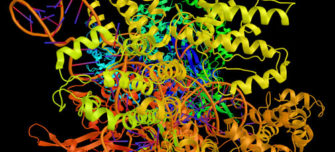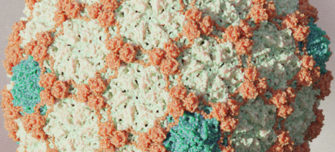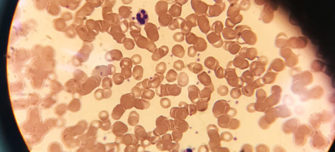Exploring microbiology and genetics

Much of our understanding of genetics including mutations, DNA, RNA and much more has come from fundamental research in microbes.
Areas of genetic research such as genome editing – the deliberate alteration of selected DNA sequences in living cells – is increasingly at the forefront of scientific and public discussion, and has enormous potential to help us treat or avoid disease.
As sequencing data becomes more readily available and species identification of microbial communities improves, it is now possible to infer more complex interactions and further investigate the importance of abiotic factors in regulating communities.
Increasingly, gene expression profiles can be generated to look for significant changes in the nutrient dependencies of microbes in different environmental conditions.
Why does understanding microbiology and genetics matter to microbiology?
Microbiology is a pioneering discipline. Many of the fundamental processes of biology were first elucidated in microbial systems – deciphering the genetic code, the one gene–one enzyme hypothesis, the mRNA hypothesis, the first genome sequences, and many more key biological breakthroughs were all the result of microbiologists. Understanding how genes work and how they are controlled is essential to identify novel, or unexploited, bacterial gene products that can serve as targets for antibiotics and kill bacteria by completely different mechanisms from existing drugs.
We will explore three key areas which are helping us to develop a better understanding of microbiology and genetics below. Click on each content hub to find out more about our members working to develop a better understanding of the field of genetics and to access our additional resources.
-
The impact of CRISPR-Cas
About 10 years ago, scientists discovered that bacteria and archaea, generally regarded as primitive organisms, have a sophisticated adaptive immune system, known as CRISPR-Cas (Clustered Regularly Interspaced Short Palindromic Repeats). Since then laboratories all over the world have joined the race to understand and exploit CRISPR.
-
The world of phage
Phages are composed of proteins and a DNA or RNA genome that can be very simple, containing four genes, or complex, with hundreds of genes. With the emerging threat of antimicrobial resistance, alternatives to antibiotics are needed, hence, could phage therapy be considered a viable option?
-
Restriction enzymes and the process of genetic modification
Many of the fundamental processes of biology were first elucidated in microbial systems – deciphering the genetic code, the one gene–one enzyme hypothesis, the mRNA hypothesis, the first genome sequences, and many more key biological breakthroughs were all the result of microbiologists.





